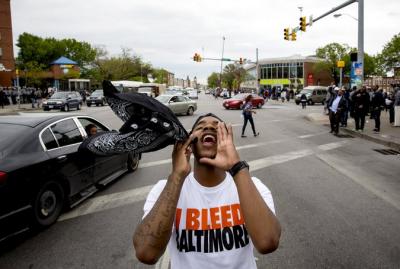
We recently linked to coverage of special treatment afforded to Georgia police accused of murder; Baltimore public defender (and candidate for judge) Todd Oppenheim has an NT op-ed about how the same idea is at work in the Freddie Gray murder trials:
Another Baltimore Injustice (www.nytimes.com)
The court has given extraordinary treatment to the accused officers, from their arrests up to their impending trials. But thousands of other defendants in Baltimore receive an inferior brand of justice.
The exceptions started with the officers’ arrests. With the cooperation of the state’s attorney’s office and the police department, the officers were given the opportunity to turn themselves in. When my clients, who are poor and predominantly African-American men, are charged with serious offenses, they are snatched off the street.
...
At $250,000 to $350,000, the officers’ bails were also disproportionately low, compared with most other cases. Almost any other defendant charged with homicide would have been held without bail. A protester charged with much less serious offenses, including disorderly conduct and malicious destruction of property during the unrest following Mr. Gray’s death, received a $500,000 bail.
...
...Bail also affects the quality of legal representation, and being held in jail can make people plead guilty when they shouldn’t, just to get out.
Not only are the Freddie Gray officers out on bail, but the court has also arranged for their cases to go to trial faster than nearly any other in the system. The first trial will take place six months after the indictment. This is unheard-of. I recently represented a client for a murder charge who sat in jail for over a year only to have his case dismissed.
...
They also have had the advantage of resolving crucial legal matters ahead of the trial, like evidentiary rulings, venue and jury sequestration. (The judge decided against the sequestration, but ruled that the jury would remain anonymous.) Most defendants are forced to argue pretrial motions on the day of trial.
In another highly unusual move, the officers were excused from appearing for these pretrial motions, while lawyers argued in their defendants’ absence. This courtesy is not extended to the average defendant.
...
The irony is that a lack of fairness in the criminal justice system is part of what Baltimore’s unrest is about. All cases affect our community, not just those featured on CNN. Either we should treat everyone like the officers (justly) or treat the officers like everyone else (unjustly).